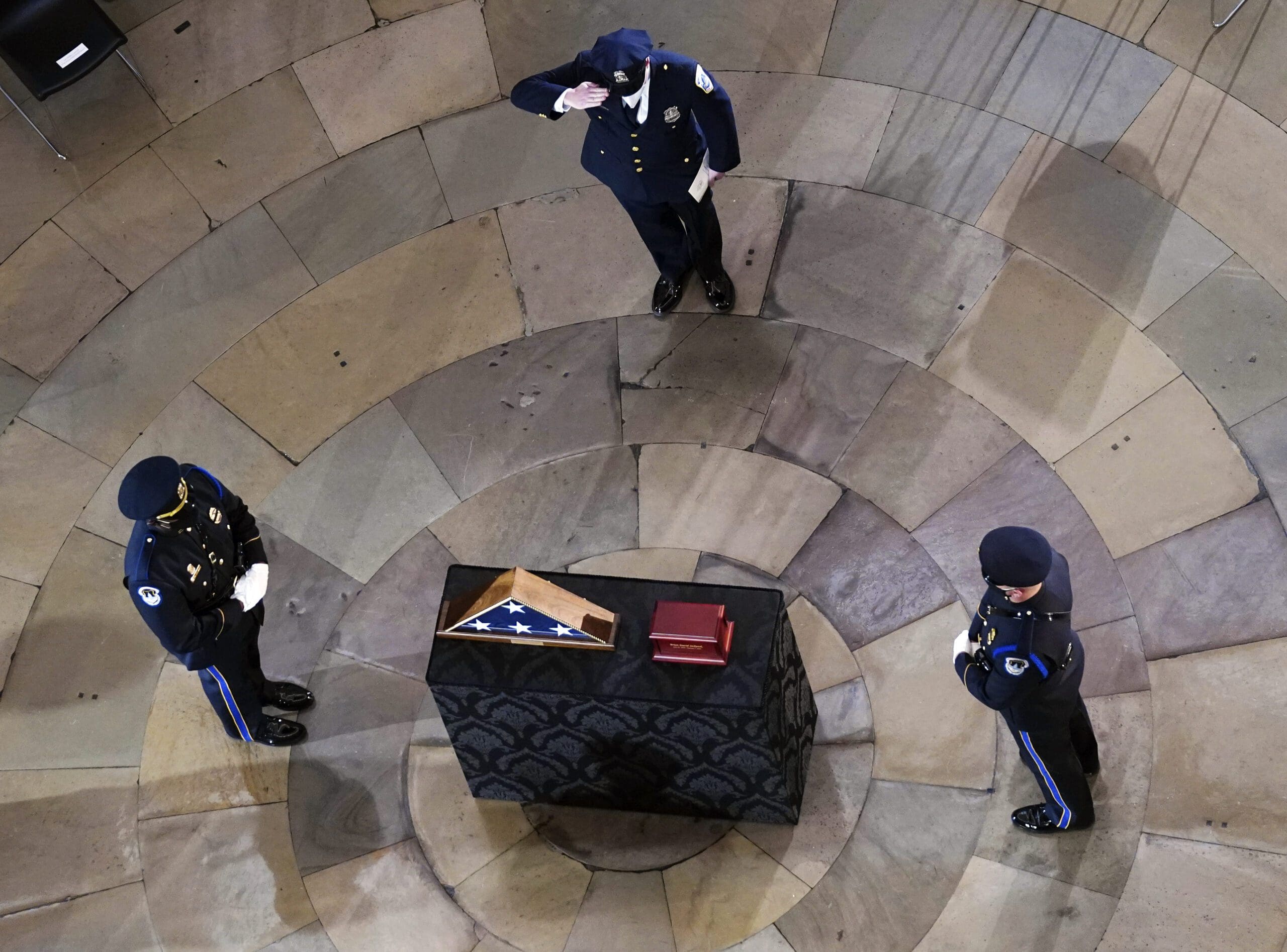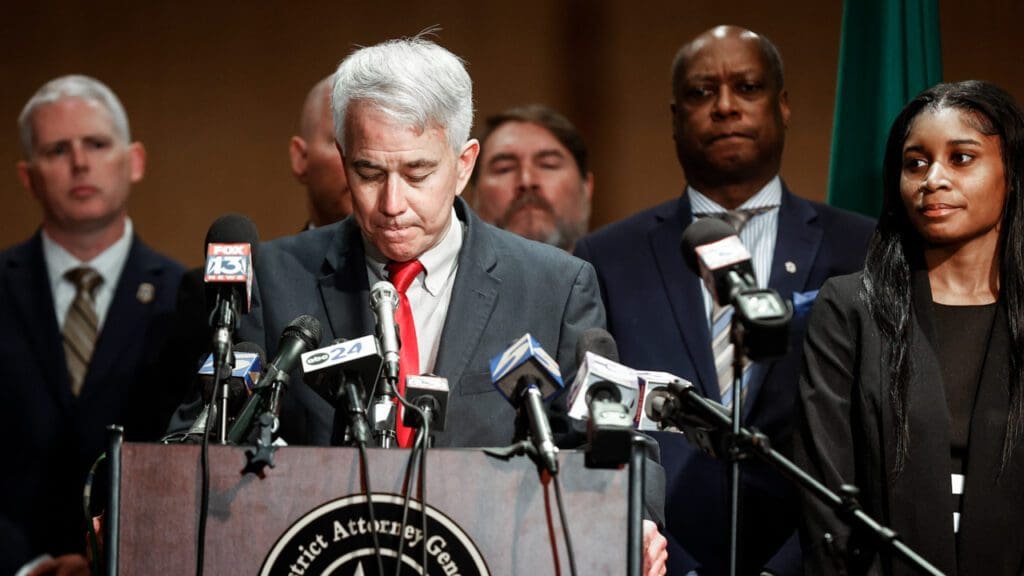

Capitol Police officers to attend sentencing of man who maced Sicknick on Jan. 6
Police officers salute during a ceremony memorializing U.S. Capitol Police officer Brian Sicknick, as an urn with his cremated remains lies in honor on a black-draped table at the center of the Capitol Rotunda, Feb. 3, 2021. | Kevin Dietsch/Pool via AP Photo
A large contingent of Capitol Police officers is preparing to descend on the federal courthouse in Washington on Friday to attend the sentencing of a Jan. 6 rioter who sprayed their colleague Brian Sicknick in the face with a chemical agent hours before his death.
Also in attendance will be Sicknick’s longtime partner, Sandra Garza, and members of Sicknick’s family as U.S. District Court Judge Thomas Hogan delivers judgment to Julian Khater, 33, who pleaded guilty to spraying Sicknick and has been incarcerated since his March 2021 arrest.
A medical examiner determined that Sicknick’s Jan. 7, 2021, death was the result of natural causes — strokes caused by a blood clot — but noted that “all that transpired played a role in his condition.” Sicknick’s family holds Khater primarily responsible for Sicknick’s death, saying the stress of the Jan. 6 attack, punctuated by the spray attack that Khater unleashed, may have caused his health to fail.
The family wrote a series of pained and impassioned letters to the court urging a harsh sentence for Khater. It wasn’t immediately clear whether members of Sicknick’s family would also attend the sentencing hearing.
Prosecutors echoed their sentiment, agreeing that Khater bore responsibility for Sicknick’s death and urging Hogan to impose a 90-month sentence.
“While Julian Khater’s spray assault on Officer Sicknick ultimately was not determined to be the direct cause of his death,” Assistant U.S. Attorney Gilead Light wrote in a 30-page sentencing memo, “Officer Sicknick’s tragic demise, so close in time to the traumatic events of that day, underscores the seriousness of the offense committed by Khater and his fellow rioters.”
Khater’s attack became a significant flashpoint in the Jan. 6 riot. In addition to spraying Sicknick, he sprayed Caroline Edwards, a Capitol Police officer who had already been injured during the initial breach of police lines that afternoon. Edwards was a witness at the Jan. 6 select committee’s first public hearing and described the horrors she witnessed as a mob of then-President Donald Trump’s supporters surged past police lines and into the Capitol.
The sentencing hearing is sure to be wrenching, a stark reminder of the real-world pain caused by the Jan. 6 attack. While many Capitol Police officers have taken the trek to the courthouse to testify in Jan. 6 trials or make victim impact statements in cases in which they were personally scarred by the actions of a particular defendant, Friday’s hearing appears to be the first organized, collective action by a large swath of the department in support of a fallen officer.
Other Capitol Police and Metropolitan Police Department officers died subsequent to the events of Jan. 6, including at least two by suicide. One member of the mob, Ashli Babbitt, was shot and killed by a Capitol Police officer as she tried to breach the House chamber. Several others in the crowd that day died amid the chaos.
Khater’s family has pleaded with Hogan for leniency.
“I am not excusing his actions, your Honor, only pleading for a second chance for Julian to truly live a life of service and repentance,” his mother, Eleanor Khater, wrote in a letter to the judge. “I place my son in your hands, in the desperate hope that you will show him compassion and leniency.”
In a sentencing memo urging Hogan to give Khater a sentence of time-served — his 22 months of post-arrest detention — his attorneys Joseph Tacopina and Chad Seigel cited Khater’s anxiety disorder and a pervasive mob mentality as the root causes of his behavior.
“A climate of mass hysteria, fueled by the dissemination of misinformation about the 2020 election, originating at the highest level, gave rise to a visceral powder keg waiting to ignite,” Tacopina and Seigel wrote. “And that is precisely what occurred.”
The attorneys also described Khater’s pretrial detention as “extraordinarily harsh,” particularly amid restrictions imposed as a result of the Covid pandemic.
Khater was born in New Jersey, but his father moved the family to war-torn Lebanon when he was 5, until 2006, when his family fled and returned to the United States. He agreed to attend Trump’s Jan. 6 rally when asked by a friend, George Tanios, to join him. Tanios has pleaded guilty to misdemeanor offenses stemming from the attack.









